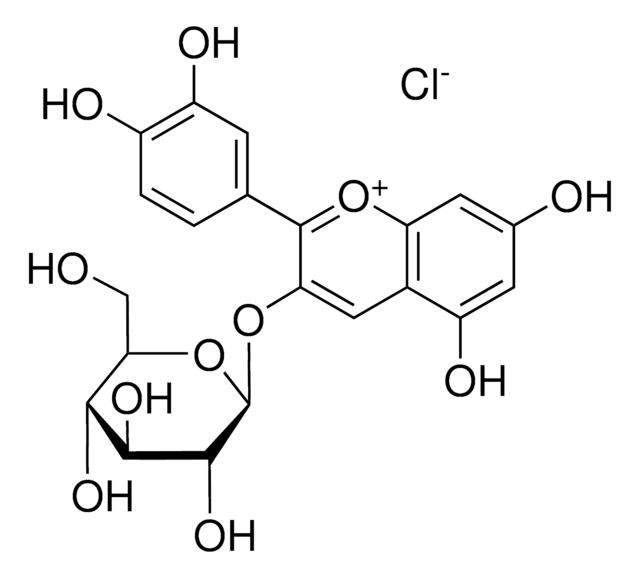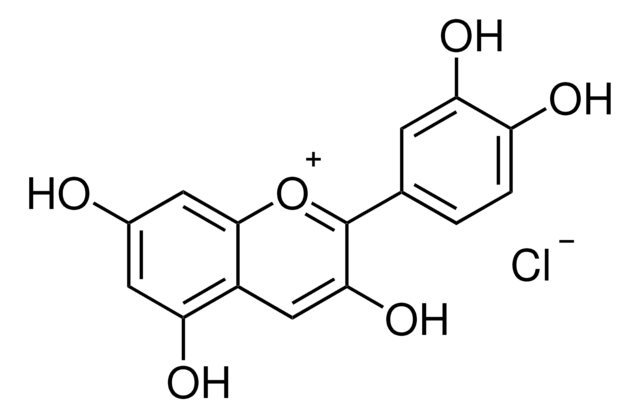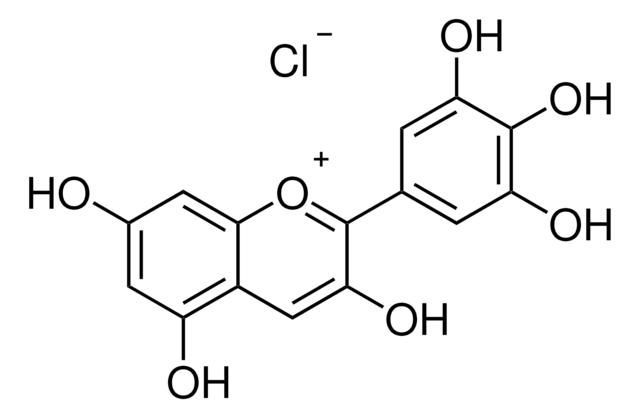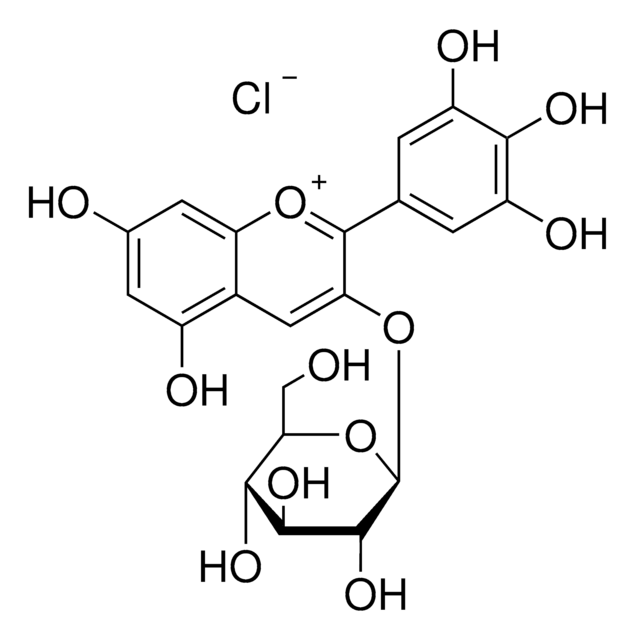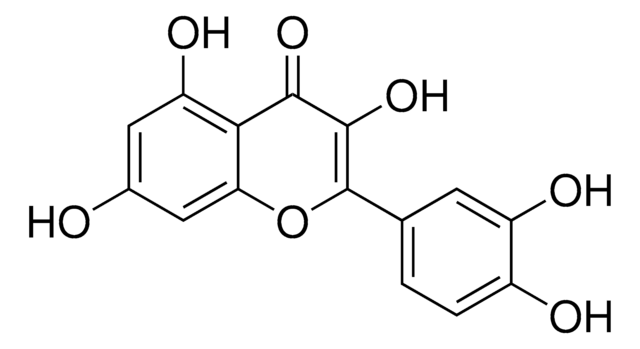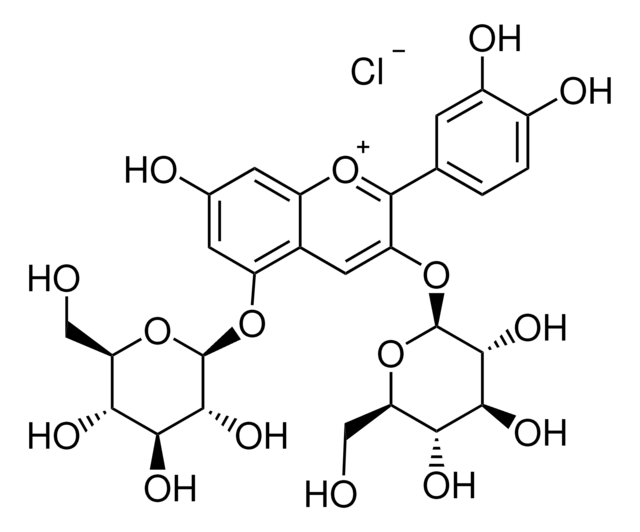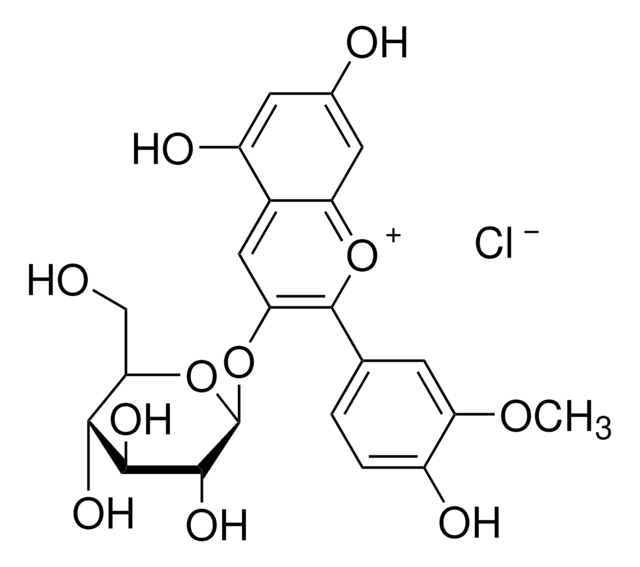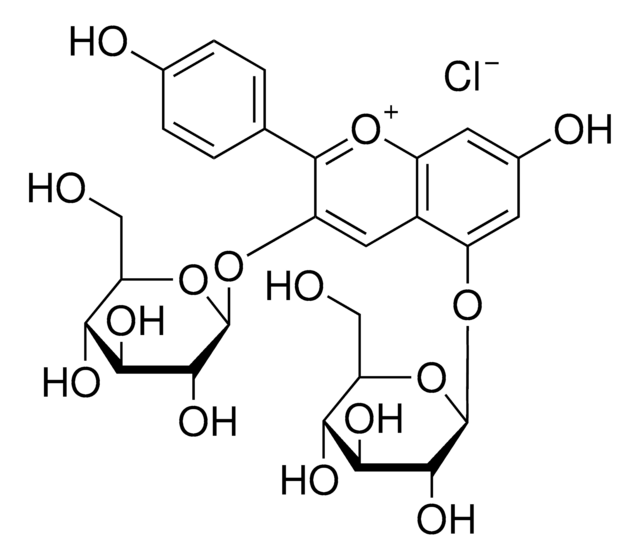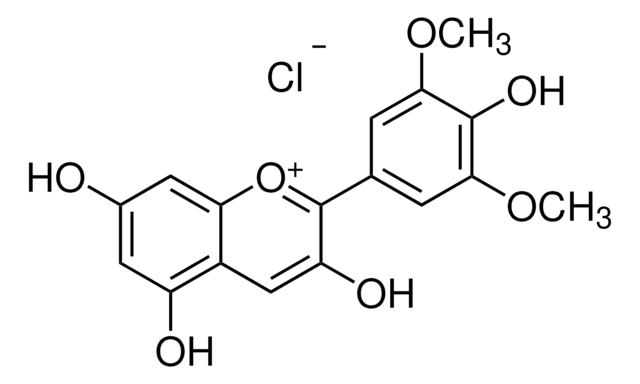43725
Delphinidin chloride
analytical standard
Synonym(s):
3,3′,4′,5,5′,7-Hexahydroxyflavylium chloride, 3,5,7-Trihydroxy-2-(3,4,5-trihydroxyphenyl)-1-benzopyrylium chloride
About This Item
Recommended Products
grade
analytical standard
Quality Level
assay
≥95.0% (HPLC)
technique(s)
HPLC: suitable
gas chromatography (GC): suitable
application(s)
food and beverages
format
neat
storage temp.
−20°C
SMILES string
[Cl-].Oc1cc(O)c2cc(O)c([o+]c2c1)-c3cc(O)c(O)c(O)c3
InChI
1S/C15H10O7.ClH/c16-7-3-9(17)8-5-12(20)15(22-13(8)4-7)6-1-10(18)14(21)11(19)2-6;/h1-5H,(H5-,16,17,18,19,20,21);1H
InChI key
FFNDMZIBVDSQFI-UHFFFAOYSA-N
Looking for similar products? Visit Product Comparison Guide
Related Categories
General description
Application
Biochem/physiol Actions
Storage Class
11 - Combustible Solids
wgk_germany
WGK 3
flash_point_f
Not applicable
flash_point_c
Not applicable
ppe
Eyeshields, Gloves, type N95 (US)
Certificates of Analysis (COA)
Search for Certificates of Analysis (COA) by entering the products Lot/Batch Number. Lot and Batch Numbers can be found on a product’s label following the words ‘Lot’ or ‘Batch’.
Already Own This Product?
Find documentation for the products that you have recently purchased in the Document Library.
Customers Also Viewed
Articles
Antioxidants protect biological systems from oxidative damage produced by oxygen-containing free radicals and from redoxactive transition metal ions such as iron, copper, and cadmium.
Our team of scientists has experience in all areas of research including Life Science, Material Science, Chemical Synthesis, Chromatography, Analytical and many others.
Contact Technical Service